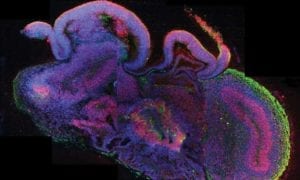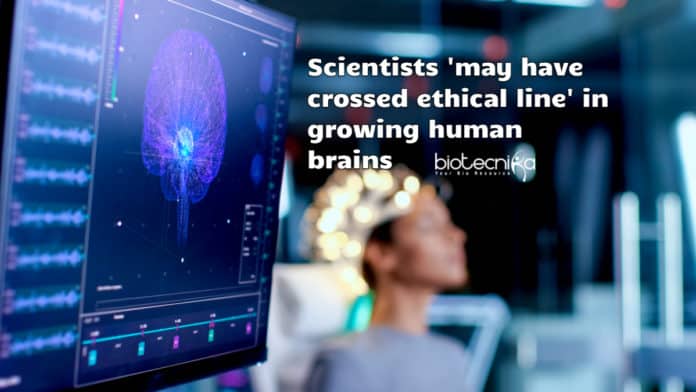Ethical issues in brain research; Scientists ‘may have crossed ethical line’
Scientists may have crossed an “ethical Rubicon” by growing lumps of the human brain in the laboratory, and in some cases transplanting the tissues into the animals, researchers warn.
The creation of brain “organoids” has become one of the hottest fields in modern neuroscience. The blobs of tissues are made from stem cells &, while they are only of pea-size, some have developed spontaneous brain waves, that are similar to those seen in the premature babies.
Many researchers believe that organoids have the potential to transform medicine. They say this is by allowing them to probe the living brain like never before. But the study is controversial because it is unclear where it may cross the line into human experimentation.
On Monday, scientists will tell the world’s largest annual meeting of neuroscientists that some of the scientists working on the organoids are “perilously close” to crossing the ethical line, while other scientists may already have done so by creating the sentient lumps of the brain in the laboratory.
There is even a possibility of
the organoid being sentient, scientists could be crossing that line, said Elan Ohayon, director of Green Neuroscience Laboratory, San Diego. He added that he doesn’t want people doing research studies where there is potential for something and somebody to suffer.Because of the manifest difficulties in doing research studies live human brains and organoids are considered a landmark development. These studies have been used to investigate schizophrenia & autism, and why some babies develop small brains when the babies are infected with Zika virus in the mother’s womb. Scientists hope to use organoids to study a raft of brain disorders, from Alzheimer’s to Parkinson’s, & eye conditions such as age-related macular degeneration.

But in the presentation to the Society for Neuroscience meeting in Chicago, Ohayon and his research colleagues Ann Lam & Paul Tsang will argue that the checks must be in place to ensure that brain organoids do not experience suffering. The team is already seeing activity in the organoids that is reminiscent of biological activity in developing animals, Ohayon said.
In one of the recent study, scientists at Harvard University showed that the brain organoids develop a rich diversity of cells & tissues, from cerebral cortex neurons to the retinal cells. Organoids grown for 8 months developed their own neuronal networks that sparkled with activity and responded when the light was shone on them. In another research study led by Fred Gage at the Salk Institute in San Diego, scientists transplanted the human brain organoids into the mouse brains and it was found that they connected up to the animal’s blood supply and also sprouted some fresh connections.
Ohayon wants the funding agencies to freeze all research studies that aim to put the human brain organoids into the animals, along with other work where there is a reasonable chance of organoids becoming sentient. He has developed computer models that he believes help identify when sentience is likely to arise but adds there is an “urgent need” for more works in this area.
In Britain, scientists are already banned from working on the donated embryos that are older than fourteen days. This limit, which some researchers want to extend, was imposed to protect the developing humans from suffering.
Last year, a group of researchers, lawyers, ethicists, & philosophers called for an ethical debate on the brain organoids. The authors, including Hank Greely, director of the Center for Law and the Biosciences at Stanford University in California, said brain organoids were not yet sophisticated enough to raise any immediate concerns, but that it was time to start discussing the guidelines.
Greely believes that the concerns become more serious if organoids perceive and react to stimuli that might cause the pain. He added that it becomes still more important if we really have s reason to believe the organoid has an aversive reaction to that particular stimuli, that it ‘feels pain’. he said that he strongly doubts that anyone has reached that point or comes close to it.
Gage told the Guardian that he thinks it is never too soon to raise issues about ethics in science, so that thoughtful dialogue can guide scientific research & decisions.
Editor’s Note: Scientists ‘may have crossed the ethical line’ in growing human brains, ethical issues in brain research, brain researches, mini-brains, brain organoids.






























